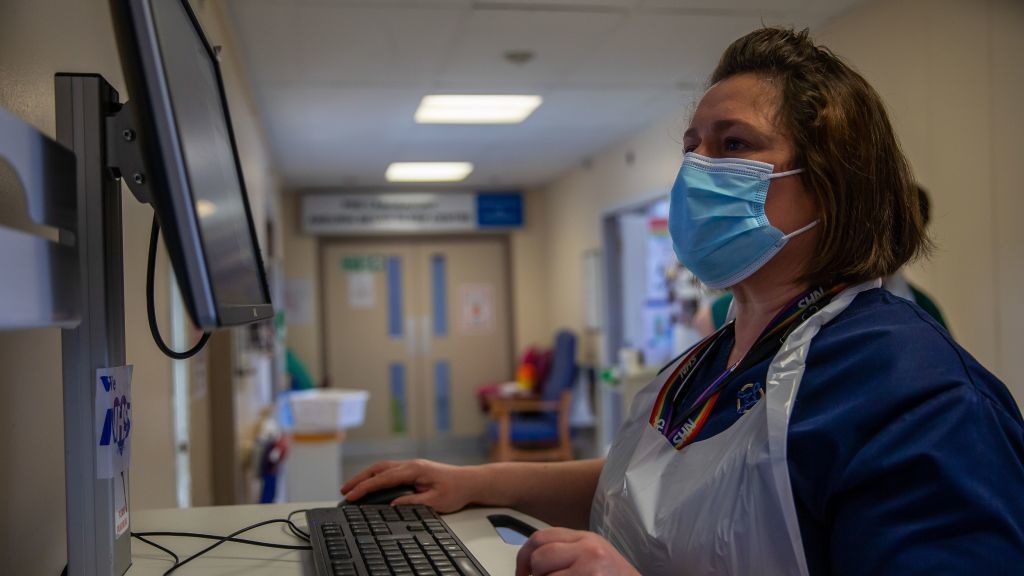Scottish NHS Board finds fix for two-day IT glitch, but cause remains unknown
NHS Greater Glasgow and Clyde Board blames Microsoft Active Directory glitch for downtime, but doesn't know what caused it.

The "major IT problem" that blighted Scotland's largest NHS board, leading to hundreds of outpatient appointments being postponed over the last two days, has been fixed.
The NHS Greater Glasgow and Clyde (NHSGGC) board has confirmed it's plugged the networking problem which affected the way staff accessed the organisation's clinical and administrative systems.
Although 709 patient episodes have had to be postponed, our staff were able to see some 10,000 patients using manual backup systems.
The public sector organisation's IT team enlisted the help of NHS suppliers Microsoft and Charteris to help forge the fix.
The organisation said it is still unsure what caused the issue, which resulted in the postponement of 599 outpatient appointments, 62 inpatient procedures and 48 chemotherapy treatments over the past two days.
However, Robert Calderwood, CEO of NHSGGC, was able to shed some light on the technologies affected by this "unprecedented IT issue".
"The situation is that, as users log on they go through a system called Microsoft Active Directory, a router system which recognises users and allows individual access to our clinical and administrative support systems," said Calderwood.
"This was corrupted over the weekend, which became apparent when staff logged on to the system on Tuesday after the holiday weekend."
Get the ITPro daily newsletter
Sign up today and you will receive a free copy of our Future Focus 2025 report - the leading guidance on AI, cybersecurity and other IT challenges as per 700+ senior executives
NHSGGC said it is now working closely with Microsoft to get to the root cause of the problem.
Despite the postponed appointments, the board said no data had been lost as a result of the technical glitch, and that more than 10,000 patient appointments have proceeded as normal during the last couple of days.
As a result, Calderwood went on to praise the work of the firm's clinical and IT staff for keeping many other patient services up and running during this period of downtime.
"Although 709 patient episodes have had to be postponed, our staff were able to see some 10,000 patients using manual backup systems," said Calderwood.
"I can also report today that some of the patients affected have already been re-appointed and will be seen in the next few days. Arrangements are now being made to ensure that all the other patients affected will be offered a re-appointment as quickly as is possible."
-
 Bigger salaries, more burnout: Is the CISO role in crisis?
Bigger salaries, more burnout: Is the CISO role in crisis?In-depth CISOs are more stressed than ever before – but why is this and what can be done?
By Kate O'Flaherty Published
-
 Cheap cyber crime kits can be bought on the dark web for less than $25
Cheap cyber crime kits can be bought on the dark web for less than $25News Research from NordVPN shows phishing kits are now widely available on the dark web and via messaging apps like Telegram, and are often selling for less than $25.
By Emma Woollacott Published
-
 NHS leaders are keen to adopt new digital tools, but IT can't solve problems on its own
NHS leaders are keen to adopt new digital tools, but IT can't solve problems on its ownA survey of healthcare decision-makers finds they believe IoT devices and electronic health recording could help them reach more patients quicker
By Emma Woollacott Published
-
 How a paperless approach cut wasted staff hours at Bradford Teaching Hospitals Trust
How a paperless approach cut wasted staff hours at Bradford Teaching Hospitals TrustCase study Through DrDoctor’s digital portal for patient appointments and advice, the Rheumatology team at Bradford Teaching Hospitals NHS Foundation Trust has dramatically cut
By Peter Ray Allison Published
-
 Healthcare’s next chapter
Healthcare’s next chapterwhitepaper Revolutionizing how you care with EPR experts you can trust
By ITPro Published
-
 How digital experience management helped an NHS trust improve productivity
How digital experience management helped an NHS trust improve productivityCase study Princess Alexandra Hospital NHS Trust used digital experience management to cut device failure and restore time to clinicians
By Rene Millman Published
-
 Will the NHS Federated Data Platform transform UK healthcare?
Will the NHS Federated Data Platform transform UK healthcare?In-depth Plans to create a data platform in partnership with the private sector could revolutionize NHS treatment, but concerns over data privacy and security are festering
By Jonathan Weinberg Published
-
 NHS IT issues costing doctors more than 13 million hours annually
NHS IT issues costing doctors more than 13 million hours annuallyNews Doctors warn that ageing IT infrastructure is impacting patient care and clinical outcomes
By Ross Kelly Published
-
 Automation is helping the NHS clear its patient backlog, but not as quickly as expected
Automation is helping the NHS clear its patient backlog, but not as quickly as expectedAnalysis The healthcare service's big bet on robotic process automation is making 'impactful' but slow progress
By Connor Jones Published
-
 DHSC sets out ambitious targets for NHS App by 2023, beyond
DHSC sets out ambitious targets for NHS App by 2023, beyondNews Ongoing NHS digitisation efforts will form backbone of the new system
By Rory Bathgate Published